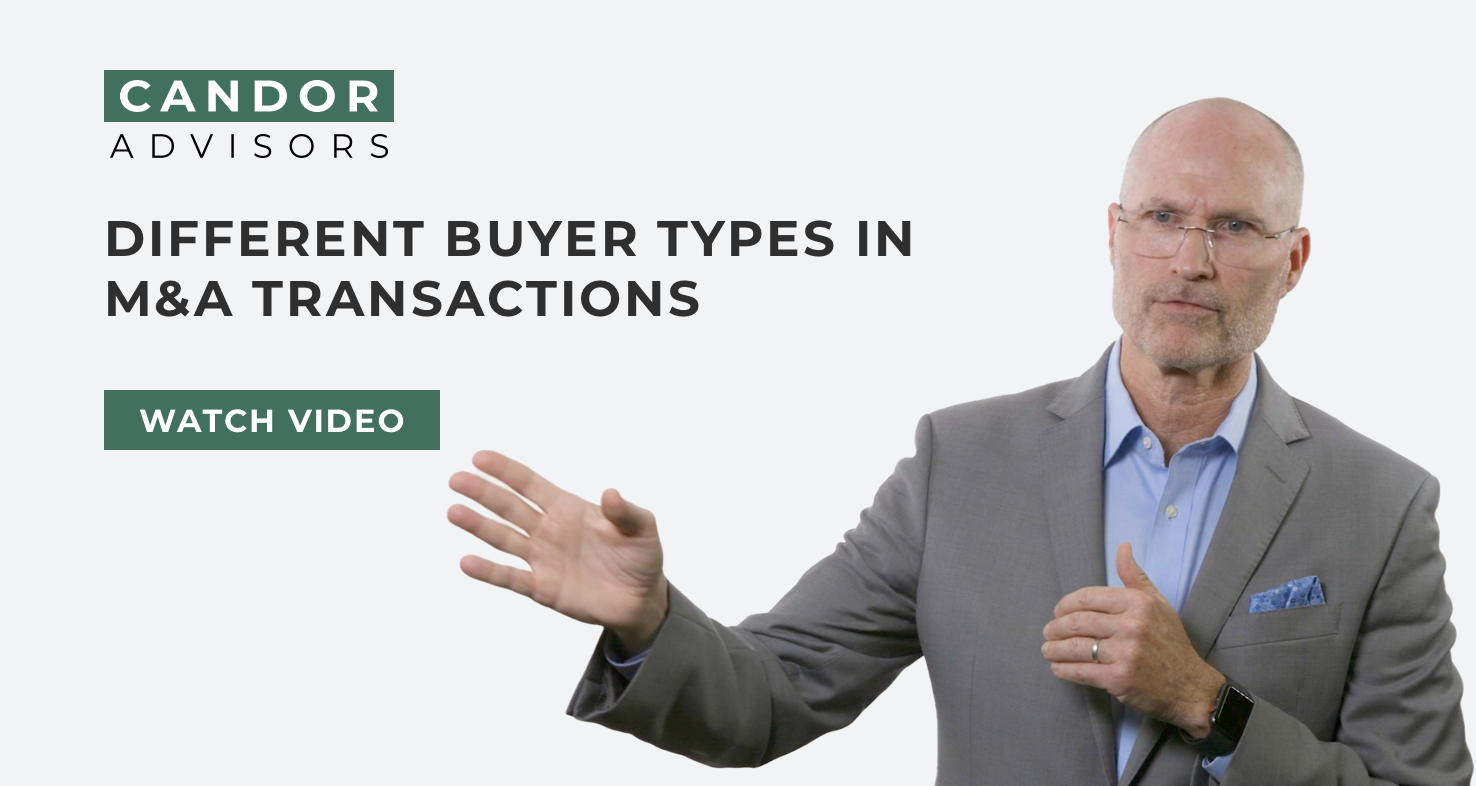Different Buyer Types in M&A Transactions
With increased M&A activity focused on buyouts of private, owner-led businesses, the numbers and types of buyers has increased as well. Independent Sponsors, previously referred to as "fundless sponsors" and alternatives like search funds and SPACs make it increasingly difficult for selling owners to get clarity on just who's making the outreach to buy their company, and whether they should have preferences. Here's a quick primer on one of the most common groups.
Buyer Types
In the complex world of mergers and acquisitions (M&A), knowing the various buyer types is key for successful deals. Let's simplify the distinction between strategic buyers and financial buyers to help you grasp the dynamics of these transactions more easily:
Strategic Buyers: Industry Insiders
These are companies already operating in your industry. Whether they're directly linked with your business or operate in a related sector, strategic buyers actively seek opportunities to expand their market presence or capitalize on synergies with complementary businesses.
Financial Buyers: Private Equity and Investment Firms
Financial buyers, such as private equity firms and investment companies, approach M&A transactions differently. They invest in companies on behalf of themselves and their partners, using dedicated funds earmarked specifically for acquisitions. Financial buyers often collaborate with banks and lenders to secure additional capital for their deals.
Independent or Fund Sponsors: A Unique Perspective
Within financial buyers, there's a unique category known as independent or fund-less sponsors. Unlike traditional private equity firms, these buyers don't operate with pre-established funds for deals. Instead, they raise capital on a deal-by-deal basis, working with limited partners to fund their investment ventures.
Key Considerations for Sellers
When choosing a buyer, several critical factors come into play:
Risk Assessment: Understanding the buyer's ability to actually obtain the capital and their track record of successful deals.
Equity Retention: Evaluating how the buyer plans to drive returns for your business, especially if you retain equity post-sale.
Decision-Making Dynamics: Clarifying who holds decision-making authority within the buyer's organization, whether it's the sponsor or larger limited partners.
Future Capital Needs: Anticipating how additional capital requirements will be managed, particularly during periods of slower business activity.
Partnering for Success
Aligning with the right buyer type is crucial for successful M&A transactions. Working closely with a reputable transaction advisory services firm can provide invaluable guidance and strategic insights throughout the process, ensuring a smooth and successful deal execution.

Signup for Kirk's Insights & Get Our Free E-Book
6 Secrets to Selling Your Business







